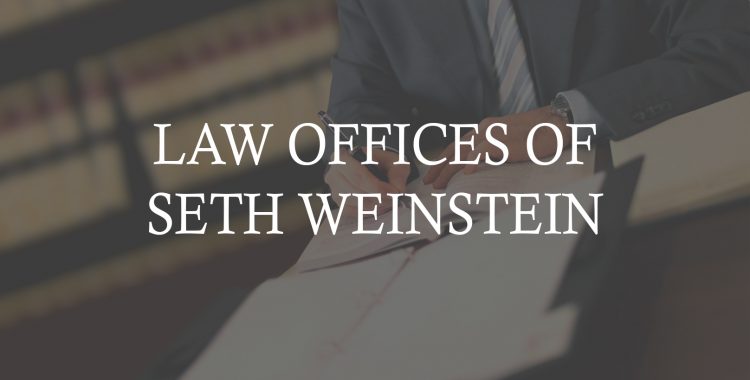California Bureau of Private Postsecondary Education License Defense Attorney
California BPPE License Defense Lawyer
The California Bureau of Private Postsecondary Education, known as the BPPE, licenses thousands of postsecondary schools, known as Accredited Educational Institutions, in the State of California. Most California BPPE licensed postsecondary schools have minimal or no contact with the enforcement arm of the California Bureau of Private Postsecondary Education. For Licensees who become part of the California Bureau of Private Postsecondary Education disciplinary process, the consequences are profound. The BPPE License disciplinary process is complex, procedural and time consuming. Postsecondary schools facing the California Bureau of Private Postsecondary Education disciplinary process should seek legal representation from an experienced California Bureau of Private Postsecondary Education License Defense Attorney.
California Bureau of Private Postsecondary Education Investigation Defense Lawyer
The majority of California Bureau of Private Postsecondary Education investigations begin with the filing of a consumer Complaint. However, California Bureau of Private Postsecondary Education Investigations also occur through sting operations, criminal conviction referrals and criminal investigations. The California Bureau of Private Postsecondary Education utilizes non sworn civilian investigators to conduct non criminal investigations. The California Department of Consumer Affairs employs sworn Peace Officer Investigators to conduct criminal investigations against Licensees. These employees investigate criminal and administrative law violations. Administrative Law Due Process Rights differ substantially from the Due Process Rights accorded in criminal law.
It is important to have an attorney that understands the California Bureau of Private Postsecondary Education disciplinary process. At the conclusion of a California Bureau of Private Postsecondary Education investigation, the Bureau has several options. The Bureau can choose to close the Complaint. The Bureau can choose to issue a Citation. The Bureau can also choose to refer the matter to the California Attorney General’s Office. The Attorney General’s Office will determine whether cause exists to file a formal disciplinary Accusation. In cases involving criminal conduct, the Bureau may refer the case to the District Attorney’s Office for criminal prosecution. If you are a licensee facing a California Bureau of Private Postsecondary Education Investigation, contact a California Bureau of Private Postsecondary Education License Defense Attorney for representation.
California Bureau of Private Postsecondary Education Accusation Defense Attorney
A formal Accusation served on a California BPPE licensee serves as notice to a licensee that the Bureau intends to revoke the operating approval of a postsecondary Accredited Educational Institution. The licensee, now called the Respondent, has only 15 days from the date that the Accusation was served (not received, but served) to file a Notice of Defense. The failure to file a Notice of Defense results in a Default against the licensee. A Default will result in the immediate Revocation of the license.
An Accusation is a serious matter that can result in the suspension or revocation of a BPPE License in California. In many cases, it is possible for Licensees to reach a Stipulated Agreement with the Attorney General’s Office and California Bureau of Private Postsecondary Education. A Stipulated Agreement is a formal term for a settlement agreement. If a Stipulated Agreement cannot be reached, the parties will proceed to a formal Hearing before the California Office of Administrative Hearings (OAH). Licensees facing a California Bureau of Private Postsecondary Education Accusation should contact an experienced California Bureau of Private Postsecondary Education License Defense Attorney for representation.
California BPPE Hearing Attorney
The California Office of Administrative Hearings, also known as OAH, maintains several Court Hearing locations. These Court locations are in Los Angeles, Oakland, Sacramento and San Diego. In some instances, Hearings may be held offsite in Bakersfield, Fresno, Orange County, Riverside, San Bernardino, San Francisco, San Jose or Ventura. The Administrative Law Hearing is a formal Hearing before an Administrative Law Judge.
The Administrative Law Judge, or ALJ, will issue a written Proposed Decision approximately 30 days after the Hearing. The California Bureau of Private Postsecondary Education can adopt, modify or reject the ALJ’s Proposed Decision. The California Bureau of Private Postsecondary Education action is called the Final Decision and Order. There are two main rights of Appeal of a Final Decision and Order. California Government Code § 11521 allows a licensee to file a Petition for Reconsideration prior to the effective date of the Final Decision and Order. Pursuant to California Code of Civil Procedure § 1094.5, the licensee can also file a Petition for Writ of Mandamus in Superior Court. A Writ must be filed within 30 days of the effective date of the Final Decision and Order. California Licensees facing a California Bureau of Private Postsecondary Education Administrative Law Hearing need effective representation from a California Bureau of Private Postsecondary Education License Defense Lawyer.
California Bureau of Private Postsecondary Education License and Criminal Convictions
The California Bureau of Private Postsecondary Education can discipline Licensees for criminal convictions. California Bureau of Private Postsecondary Education discipline occurs for criminal convictions that are substantially related to the duties, functions and qualifications of a licensee. Common criminal offenses that can cause BPPE License discipline are:
|
|
|
The California Bureau of Private Postsecondary Education and other law enforcement agencies also investigate criminal conduct by Licensees in the course and scope of their practice. Criminal investigations often involve Licensees engaged in Fraud. In serious criminal cases against Licensees pending in Criminal Court, the California Bureau of Private Postsecondary Education and the California Attorney General’s Office may seek a California Penal Code § 23 Order against the licensee. A California Penal Code § 23 Order seeks to suspend a BPPE License in Criminal Court.
Licensees facing criminal charges and Licensees who are convicted of criminal offenses need an experienced California Bureau of Private Postsecondary Education License Defense Attorney for representation in disciplinary proceedings before the California Bureau of Private Postsecondary Education.
California BPPE Statement of Issues Attorney
The California Bureau of Private Postsecondary Education thoroughly investigates all applicants for BPPE Licenses. Most California Bureau of Private Postsecondary Education denials occur due to failing to meet the Bureau’s operating requirements. Statement of Issues Hearings and Accusation Hearings before the Office of Administrative Hearings maintain a similar procedure. However, in a Statement of Issues Hearing, the applicant bears the burden of proof. Individuals denied a BPPE License should contact a California Bureau of Private Postsecondary Education License Denial Lawyer for representation in a California Bureau of Private Postsecondary Education Statement of Issues Hearing. Common causes for BPPE operating approval denial are:
|
|
|


